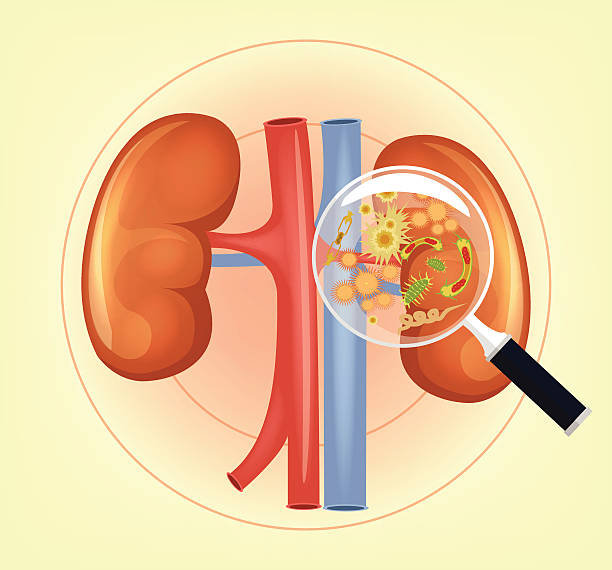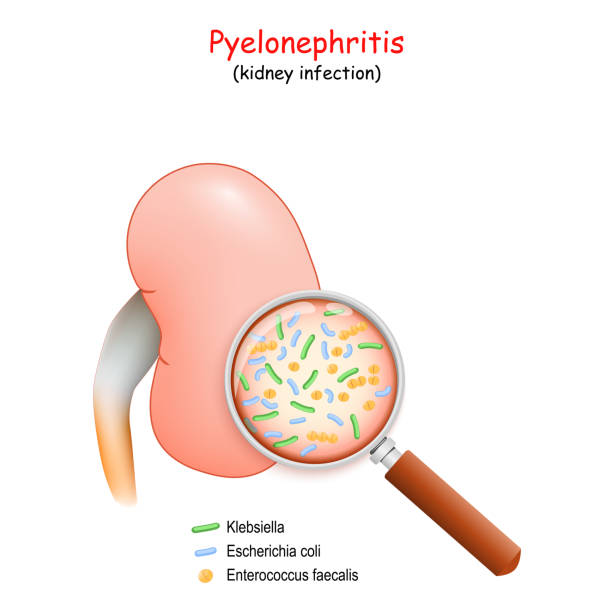Kidney infections can be painful and can cause serious health issues if left untreated. They are caused by bacteria entering the urinary tract and spreading to one or both kidneys. Symptoms can include pain in the lower back, fever, nausea, and frequent urination. If you think you may be suffering from a kidney infection, it is important to seek medical advice for proper diagnosis and treatment. Fortunately, there are several ways to help reduce your risk of developing a kidney infection, such as drinking plenty of fluids, emptying your bladder completely when you urinate, and using a condom during sexual intercourse. In this article, we will discuss the causes, symptoms, and prevention tips for kidney infections.
What is a kidney infection?
A kidney infection is caused by bacteria entering the urinary tract and spreading to one or both kidneys. The bacteria usually come from the bladder or urethra (the tube that carries urine from the bladder out of the body). If bacteria get into your kidney, they can cause an infection that may spread to the other kidney and cause a systemic infection which can be life-threatening. Kidney infections are also referred to as “pyelonephritis”, which is an infection of the upper urinary tract consisting of the kidneys, the bladder, and the ureters. Signs and symptoms of a kidney infection include pain in the lower back, fever, nausea, frequent urination, and blood in the urine. If the infection spreads to the bloodstream, it can cause life-threatening complications. Kidney infections are very serious and require immediate medical attention.source
Causes of kidney infections
Kidney infections are caused by bacteria entering the urinary tract and spreading to one or both kidneys. The bacteria may come from the bladder or from the urethra (the tube that carries urine from the bladder out of the body). These bacteria include Escherichia coli (E. coli), Klebsiella, Staphylococcus aureus, Pseudomonas, Enterococcus, and Streptococcus. The following are some of the most common causes of kidney infections. - Bladder infections: Bladder infections occur when bacteria get into the bladder and cause an infection. - Gonorrhea: Gonorrhea is a bacterial infection that can spread to the kidneys and cause pyelonephritis. - Kidney stones: Small stones can form in the kidneys and then travel to the bladder. If a stone gets stuck in the ureter, it can cause bacteria to grow and lead to a kidney infection. - Medical conditions: Diseases such as diabetes, cystic fibrosis, and hyperthyroidism put you at a higher risk of developing kidney infections. - Sexual activity: Unsafe sexual activity can increase your risk of contracting a sexually transmitted infection (STI), which can lead to a kidney infection.

Symptoms of kidney infections
Kidney infections are painful and can cause serious health issues if left untreated. Some of the most common symptoms include pain in the lower back, fever, nausea, and frequent urination. If the infection spreads to the bloodstream, it can cause life-threatening complications.
- Pain in the lower back: The lower back is one of the most common areas where a kidney infection will cause pain.
- Fever: A fever is a common symptom of many diseases and disorders, including kidney infections.
- Nausea: Feeling nauseous is another common sign that your body is fighting an infection.
- Frequent urination: If you have a kidney infection, you will likely have to urinate frequently.
- Blood in the urine: Blood in the urine is another symptom of a kidney infection.source
Diagnosis of kidney infections
Diagnosing a kidney infection is often difficult because there are similar symptoms to other diseases and infections. In some cases, a doctor may order blood tests and urine samples to determine the cause of your symptoms. Other tests that may be performed include examining the kidney, using X-rays, or using a CT scan. The diagnosis of a kidney infection is usually made when signs and symptoms of an infection, such as fever, nausea, and frequent urination are present. Blood tests can also help determine whether or not you have an infection. If the blood test results are positive, the doctor will order a urine test to determine where the infection is coming from.source
Treatment of kidney infections
The treatment for kidney infections will depend on their severity. Treatment may involve rest, medications, drinking plenty of fluids, urinating often, and getting enough sleep. If you have been diagnosed with a kidney infection, your doctor will likely prescribe antibiotics. The following are some of the most common treatments for kidney infections.
- Rest: You should get plenty of rest while you are recovering from a kidney infection. Rest is helpful because it allows your infection to clear without any added stress from activity.
- Medications: Your doctor may also prescribe medications, such as fever reducers, to help reduce your fever and pain.
- Drinking plenty of fluids: Drinking plenty of fluids is an important part of recovering from a kidney infection because it helps flush out toxins and bacteria.
Prevention tips for kidney infections
Preventing kidney infections is important since they can be difficult to treat. The following are some ways you can reduce your risk of developing a kidney infection.
- Bladder infections: You can help prevent bladder infections by frequently emptying your bladder.
- Gonorrhea: You can help prevent gonorrhea by using condoms during sexual intercourse.
- Kidney stones: You can help prevent kidney stones by eating a healthy diet, drinking plenty of water, and exercising regularly.
- Medical conditions: You can reduce your risk of developing a kidney infection by visiting your doctor regularly and following the doctor’s recommendations.
- Sexual activity: You can prevent STIs by using condoms during sexual intercourse, having fewer sexual partners, and getting STI testing regularly.source
The importance of medical advice
If you are experiencing any of the symptoms of a kidney infection, it is important to seek medical advice for proper diagnosis and treatment. Kidney infections are very serious and can lead to serious complications if left untreated. It is important to resist the urge to self-diagnose and treat the infection yourself. This can often make the infection worse, as antibiotics are necessary to treat bacterial infections. If you have been diagnosed with a kidney infection, make sure to follow your doctor’s orders and take all recommended medications. This will help you recover faster and reduce the risk of complications. If the infection is not treated promptly, it can lead to serious complications such as sepsis, blood clotting, or kidney failure.
Reference:
https://www.nhs.uk/conditions/kidney-infection/
https://www.kidneyfund.org/all-about-kidneys/other-kidney-problems/kidney-infection
https://www.mayoclinic.org/diseases-conditions/kidney-infection/diagnosis-treatment/drc-20353393#:~:text=To%20check%20for%20a%20kidney,other%20organisms%20in%20your%20blood.
https://www.mayoclinic.org/diseases-conditions/kidney-infection/symptoms-causes/syc-20353387

Thanks for your contribution to the STEMsocial community. Feel free to join us on discord to get to know the rest of us!
Please consider delegating to the @stemsocial account (85% of the curation rewards are returned).
Thanks for including @stemsocial as a beneficiary, which gives you stronger support.